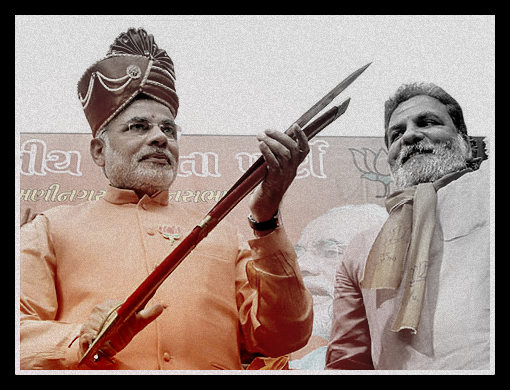Hatred is a scam. Just like a lot of stuff Capitalism and its globalizing effects want to sell us. This is what they do right? They come at our doors and they sell stuff. We buy stuff. But we also buy into stuff. Into the ideology of stuff.
The ideology of stuff isn’t your next door neighbour- wait, maybe it is. Nevertheless, it’s an outrageous liar, a manipulative predator, a tormented bully, a murderous blasphemous mother figure, a haunting daunting cyborg, a pretentious cold hearted drone, and an official doctrine- a doctrine of hate, and of lustful appetites; a doctrine of obedience, and of going wild.
To keep us at bay, Capitalism invents enemies and detractors. Focus on them it says. Business takes place as usual. But behind curtains; in the form of official mantras, and national songs. And of all sorts of patriotic jibberjabber- that weird old feeling you get when you are told to be proud of those latest mechanical contraptions made to murder other human subjects; subjects of the God of Modernity, also known as the ‘Nation-state’- a global God, a God of boundaries, a God everyone worships, both ‘us’ and ‘them’.
And here stand two neighbours. India and Pakistan. Enslaved by the passions of their new found religions- nationalism and nationalism respectively. Always bickering and swearing about and to each other. Both could benefit from a little give and take, a little mutual cooperation, a little mutual trust, which would in turn lead to some trimming off military spending here and some added social welfare spending there. But both fail to realize what’s good for them- and by them, I mean their people. Instead, both impose doctrines of hate on their people. People are told to hate people. A nation is told to hate a nation. And vice versa.
Recent developments are quite interesting. War hysteria had taken over India. But what really happened. Did people suddenly decide that Pakistan was the source of their misery. The fact that the average Indian person lives in abject poverty while the country is producing some of the wealthiest Billionaires on the planet seems too sophisticated a scheme for the diabolical foe across the border to concoct. What’s really happening here? And why is it happening when elections are at the corner and a billion people will be given the power- formally speaking- to change their destiny? Why are they told that the problems inside their borders are less important than the problems outside their border? Why are they told the miseries of the people are less important than the egos of the ruling elite? And why now?
On the other side, Pakistan just experienced elections. And what we are seeing is a pronouncedly pro-dialogue and pro-friendship government of Prime Minister Nawaz Sharif. The PM has already stated that both countries should work on cutting military spending and on boosting people spending. This is a positive sign, despite some skirmishes on the border. One can hope that some sort of dialogue and sanity is restored in the future.
But then we are reminded of a very real fear. A genocidal fascist is making his way to the throne in Delhi. In the heart of the world’s largest democracy, a mass slaughterer, Narendra Modi, is not only the strongest candidate for the PM’s office but is also the blue-eyed boy of the corporate world. He offers a lot of promise. To the corporate world that is. Under his watch, the world tolerated a systematic pogrom against the Muslim community of Gujrat. Rape, torture and slaughter were orchestrated openly in the streets while Modi justified it in an terrifying action-reaction logic.
It’s only high time to do away with logics of actions and reactions, and of ‘us’ and ‘them’. For someone like Modi to become PM only tells how nationalist-conservative rhetorics are so intertwined with capitalism and globalization. The way they get away with all this is through sowing the seeds of hatred. One may think otherwise but haters are part of the same process; the same ritual; and the same religion—the religion of nationalism.
The post The Political Economy of Hatred appeared first on My Bit for Change.
